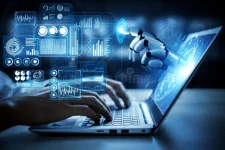The Future of Computers: A Glimpse into the Next Technological Revolution
Computers have come a long way since their inception. From room-sized mainframes of the 1940s to today’s sleek smartphones and AI-powered systems, the evolution of computing has been nothing short of revolutionary. As we stand at the brink of another transformation, the future of computers promises to reshape not just technology, but every aspect of our lives — from how we work and communicate, to how we think, learn, and even live.
The Path So Far: A Quick Overview
To understand the future, it helps to glance at the past. Early computers were massive machines used primarily for scientific calculations and military applications. Over time, with the advent of personal computers, laptops, tablets, and cloud computing, technology became more accessible, mobile, and interconnected. Now, we’re entering an era where artificial intelligence (AI), quantum computing, and human-computer integration are beginning to redefine the very nature of computing.
1. Quantum Computing: The Next Frontier
One of the most exciting developments in the future of computers is quantum computing. Unlike classical computers that process information in binary (0s and 1s), quantum computers use qubits, which can exist in multiple states at once due to a principle called superposition.
This could allow quantum computers to solve problems in seconds that would take traditional supercomputers thousands of years. Industries like pharmaceuticals, logistics, finance, and climate modeling could be transformed as quantum computing helps tackle challenges like drug discovery, optimization, and real-time risk assessment.
Companies like Google, IBM, and Intel are already racing to build stable and scalable quantum systems, although widespread adoption may still be a decade away.
2. Artificial Intelligence Integration
While AI is already prevalent in today’s systems — from chatbots and recommendation engines to self-driving cars — the future will see a deeper fusion of AI with core computing systems. Future computers will be inherently intelligent, able to learn, adapt, and make decisions without constant human input.
We can expect AI-powered computers to:
- Understand human emotions and intent
- Perform complex creative tasks like writing, composing music, or designing
- Interact more naturally through voice, gesture, or brainwave recognition
- Provide predictive, proactive assistance in both work and personal life
AI could also revolutionize education, healthcare, and business by providing customized solutions based on real-time data analysis.
3. Edge and Ubiquitous Computing
The future of computing isn’t just about speed and power — it’s about location and accessibility. Edge computing will shift data processing closer to the source (like smart devices and sensors), reducing latency and enabling faster decision-making. This is crucial for applications like autonomous vehicles and real-time industrial monitoring.
In the future, computing will be ubiquitous, meaning it will be embedded everywhere — in walls, clothing, furniture, and even our bodies. Imagine smart mirrors that monitor your health, or contact lenses that project augmented reality (AR) overlays into your vision. Computers will become invisible yet omnipresent.
4. Human-Computer Merging: Brain-Computer Interfaces (BCIs)
A futuristic yet rapidly developing area is Brain-Computer Interfaces (BCIs). These allow direct communication between the brain and external devices. Companies like Neuralink are already testing brain implants that can help people with paralysis control computers with their minds.
In the future, this could lead to:
- Hands-free computing and communication
- Enhanced memory and cognitive abilities
- Direct brain-to-brain communication
- Immersive virtual reality controlled by thought
While ethical and privacy concerns are significant, the possibilities are groundbreaking.
5. Sustainability and Green Computing
As computers become more powerful, energy consumption becomes a major concern. The future will demand eco-friendly computing solutions — from energy-efficient processors to sustainable data centers and recyclable hardware.
Innovations like liquid cooling systems, biodegradable components, and renewable-energy-powered computing infrastructure will play a major role in minimizing the carbon footprint of future technologies.
6. Security and Ethics in Future Computing
With greater power comes greater risk. The future of computers must also tackle challenges in cybersecurity, data privacy, and ethical AI use. As AI systems make more decisions on our behalf, questions around bias, accountability, and transparency will become even more critical.
Global collaboration and governance frameworks will be needed to ensure responsible innovation.
Conclusion
The future of computers is an exhilarating mix of science fiction becoming science fact. From quantum computing to brain-computer interfaces, the innovations on the horizon promise to reshape human civilization. But alongside technological progress, we must ensure that these advancements are used ethically, sustainably, and inclusively.
Ultimately, the future of computing is not just about smarter machines — it’s about empowering humans to reach new heights. The journey ahead is full of potential, and we are only just beginning to unlock what’s possible.

